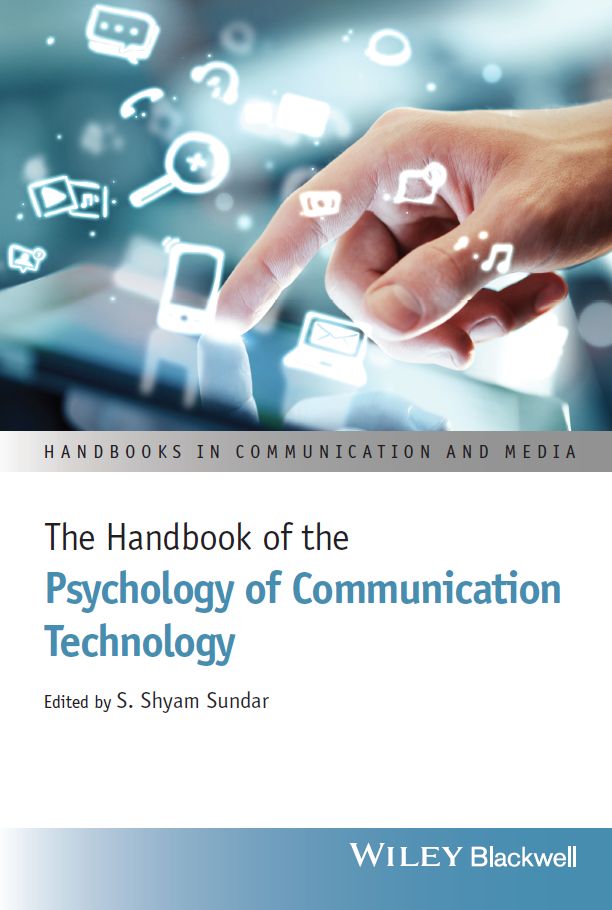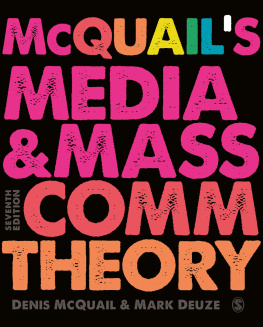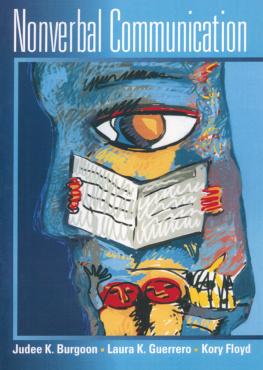
CONTENTS
List of Tables
- Chapter 03
- Chapter 08
- Chapter 21
- Chapter 24
List of Illustrations
- Chapter 03
- Chapter 07
- Chapter 08
- Chapter 13
- Chapter 14
- Chapter 15
- Chapter 20
- Chapter 21
- Chapter 24
- Chapter 25
Guide
Pages
Handbooks in Communication and Media
This series aims to provide theoretically ambitious but accessible volumes devoted to the major fields and subfields within communication and media studies. Each volume sets out to ground and orientate the student through a broad range of specially commissioned chapters, while also providing the more experienced scholar and teacher with a convenient and comprehensive overview of the latest trends and critical directions.
The Handbook of Children, Media, and Development, edited by Sandra L. Calvert and Barbara J. Wilson
The Handbook of Crisis Communication, edited by W. Timothy Coombs and Sherry J. Holladay
The Handbook of Internet Studies, edited by Mia Consalvo and Charles Ess
The Handbook of Rhetoric and Public Address, edited by Shawn J. Parry-Giles and J. Michael Hogan
The Handbook of Critical Intercultural Communication, edited by Thomas K. Nakayama and Rona Tamiko Halualani
The Handbook of Global Communication and Media Ethics, edited by Robert S. Fortner and P. Mark Fackler
The Handbook of Communication and Corporate Social Responsibility, edited by yvind Ihlen, Jennifer Bartlett and Steve May
The Handbook of Gender, Sex, and Media, edited by Karen Ross
The Handbook of Global Health Communication, edited by Rafael Obregon and Silvio Waisbord
The Handbook of Global Media Research, edited by Ingrid Volkmer
The Handbook of Global Online Journalism, edited by Eugenia Siapera and Andreas Veglis
The Handbook of Communication and Corporate Reputation, edited by Craig E. Carroll
The Handbook of Media and Mass Communication Theory, edited by Robert S. Fortner and P. Mark Fackler
The Handbook of International Advertising Research, edited by Hong Cheng
The Handbook of the Psychology of Communication Technology, edited by S. Shyam Sundar
The Handbook of the Psychology of Communication Technology
Edited by
S. Shyam Sundar
This edition first published 2015
2015 John Wiley & Sons, Inc
Registered Office
John Wiley & Sons, Ltd, The Atrium, Southern Gate, Chichester, West Sussex, PO19 8SQ, UK
Editorial Offices
350 Main Street, Malden, MA 02148-5020, USA
9600 Garsington Road, Oxford, OX4 2DQ, UK
The Atrium, Southern Gate, Chichester, West Sussex, PO19 8SQ, UK
For details of our global editorial offices, for customer services, and for information about how to apply for permission to reuse the copyright material in this book please see our website at www.wiley.com/wiley-blackwell.
The right of S. Shyam Sundar to be identified as the author of the editorial material in this work has been asserted in accordance with the UK Copyright, Designs and Patents Act 1988.
All rights reserved. No part of this publication may be reproduced, stored in a retrieval system, or transmitted, in any form or by any means, electronic, mechanical, photocopying, recording or otherwise, except as permitted by the UK Copyright, Designs and Patents Act 1988, without the prior permission of the publisher.
Wiley also publishes its books in a variety of electronic formats. Some content that appears in print may not be available in electronic books.
Designations used by companies to distinguish their products are often claimed as trademarks. All brand names and product names used in this book are trade names, service marks, trademarks or registered trademarks of their respective owners. The publisher is not associated with any product or vendor mentioned in this book.
Limit of Liability/Disclaimer of Warranty: While the publisher and authors have used their best efforts in preparing this book, they make no representations or warranties with respect to the accuracy or completeness of the contents of this book and specifically disclaim any implied warranties of merchantability or fitness for a particular purpose. It is sold on the understanding that the publisher is not engaged in rendering professional services and neither the publisher nor the author shall be liable for damages arising herefrom. If professional advice or other expert assistance is required, the services of a competent professional should be sought.
Library of Congress Cataloging-in-Publication Data
The handbook of the psychology of communication technology / edited by S. Shyam Sundar.
pagescm
Includes bibliographical references and index.
ISBN 978-1-118-41336-4 (cloth)
1.Communication and technologyPsychological aspects.2.Information technologyPsychological aspects.3.CommunicationPsychological aspects.I.Sundar, S. Shyam.
P96.T42H366 2015
303.4833dc23
2014026814
A catalogue record for this book is available from the British Library.
Cover image: Peshkova / Shutterstock

Dedicated to Cliff Nass (19552013), teacher, advisor, mentor, friend, and a pioneering force in the study of psychology of communication technology
Photo Credit Source: Linda A. Cicero / Stanford News Service
Biographical Notes
Cristina Botella is Full Professor of Clinical Psychology at Universitat Jaume I, Spain. Her main research line is the design and testing of clinical applications based on information and communication technologies for the treatment of emotional disorders. She has published over 100 papers and participated in various research projects granted by national as well as European funds.
Jeremy N. Bailenson is Founding Director of VHIL and an Associate Professor in the Department of Communication at Stanford. His main area of interest is the phenomenon of digital human representation. His findings have been published in over 70 academic papers in the fields of communication, computer science, education, and psychology.
Juana Bretn-Lpez is an Assistant Professor of Psychological Treatments at the Universitat Jaume I, Spain. Her main research interests are anxiety disorders or behavioral addictions and the application of new technologies to treat these. She has published over 27 papers and participated in several research projects.
Pam Briggs holds a Research Chair at Northumbria University, where she explores identity, trust, privacy, and security and inclusion issues in social media. Her current projects address trust issues in peer-to-peer health care, the influence of social media in message dissemination during pandemics, location-based services and technologies, and cybersecurity identity management and digital personhood.
Judee K. Burgoon is a Professor and Director of Human Communication Research, Center for the Management of Information at the University of Arizona and a Distinguished Visiting Professor with the Department of Communication at the University of Oklahoma. She is the most prolific female scholar in communication in the twentieth century.
Next page










